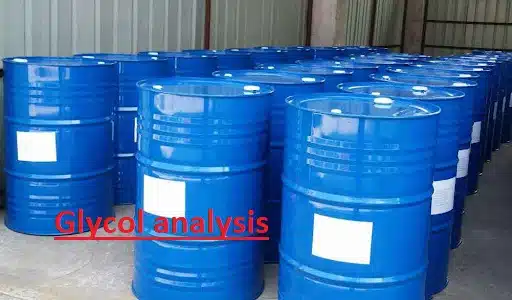
Glycol analysis reveals the power of Monoethylene Glycol (MEG), Diethylene Glycol (DEG), and Triethylene Glycol (TEG) in industrial settings. These glycols, derived from ethylene oxide, serve unique roles based on their chemical structure. At Basekim, we supply high-quality MEG, DEG, and TEG to meet your production needs. Let’s break down their differences and applications to boost your industrial success.
Understanding Glycol Basics
Glycols are colorless, odorless liquids with excellent solvent and hygroscopic properties. Their structure varies: MEG has one ethylene unit, DEG has two, and TEG has three. This difference shapes their physical traits and uses. Our glycols at Basekim meet global standards, ensuring reliable glycol analysis for your projects.
Chemical Structure and Properties
The number of ethylene units defines each glycol’s behavior:
MEG: One unit results in a lower boiling point (197°C) and moderate viscosity.
DEG: Two units raise the boiling point to 245°C and increase viscosity.
TEG: Three units push the boiling point to 285°C, offering the highest viscosity.
This glycol analysis highlights how structure impacts their industrial fit. Our products at Basekim leverage these properties for optimal performance.
Physical Characteristics Comparison
Glycol analysis extends to physical traits that guide their use:
Boiling Point: MEG’s 197°C suits high-temperature processes, while TEG’s 285°C excels in heat-intensive tasks.
Viscosity: DEG’s higher viscosity aids in thicker solutions, unlike MEG’s lighter flow.
Water Absorption: TEG absorbs more moisture, making it ideal for dehydration, compared to MEG’s moderate capacity.
These differences shape their applications. Our range at Basekim supports glycol analysis tailored to your needs.
Applications of MEG
MEG leads in several industries due to its versatility:
Polyester Production: MEG forms PET for bottles and textiles, driving packaging growth.
Antifreeze: It prevents engine freezing in vehicles, a top choice in cold climates.
Coolants: MEG cools machinery efficiently, extending equipment life.
Manufacturers rely on our MEG at Basekim for consistent glycol analysis results.
Applications of DEG
DEG’s unique properties open other doors:
Resin Solvent: DEG dissolves resins in paints and coatings, enhancing finish quality.
Aircraft Antifreeze: Its high boiling point suits aviation de-icing needs.
Gas Dehydration: DEG removes moisture from natural gas, improving pipeline efficiency.
Our DEG at Basekim delivers glycol analysis that meets specialized demands.
Applications of TEG
TEG stands out in specific fields:
Gas Dehydration: TEG dries natural gas, preventing corrosion in pipelines.
Air Sterilization: It purifies air in hospitals and labs with its hygroscopic nature.
Plasticizers: TEG softens plastics, improving flexibility in manufacturing.
Producers trust our TEG at Basekim for precise glycol analysis applications.
Safety and Handling Tips
Glycol analysis includes safety considerations:
MEG: Low toxicity but requires careful handling in high doses.
DEG: Higher toxicity demands strict safety measures during use.
TEG: Lowest toxicity, making it safer for sensitive applications.
We provide safety guidelines at Basekim to ensure safe handling across all grades.
Commercial Advantages
These glycols offer clear benefits:
Cost Efficiency: Tailored use reduces waste and optimizes production costs.
Flexibility: Diverse applications suit multiple industries.
Reliable Supply: Basekim ensures steady availability for global markets.
Why Choose Basekim?
At Basekim, we offer MEG, DEG, and TEG with proven glycol analysis. Our products undergo rigorous testing to meet industry needs. We provide flexible packaging—drums, IBCs, or bulk—and export to regions like Morocco and Tunisia with fast delivery. Our team guides you to the best glycol for your application. Explore our glycols at Basekim.
Safety and Sustainability
Handling glycols requires care due to their chemical nature. We supply clear safety protocols for storage and use. Our production follows eco-friendly practices, minimizing environmental impact. Learn more at Basekim.
Order Your Glycols Today
Ordering is straightforward. Visit Basekim to review MEG, DEG, and TEG options. Check specs, request a quote, or contact us for expert advice. We deliver quickly, so you can start your project now. Get started at Basekim.
Conclusion
Glycol analysis empowers your industry by comparing DEG, MEG, and TEG for optimal use. Each grade serves unique needs, from polyester to gas dehydration. Basekim’s quality supply and global reach make us your trusted partner. Discover our glycols at Basekim and elevate your production today.
